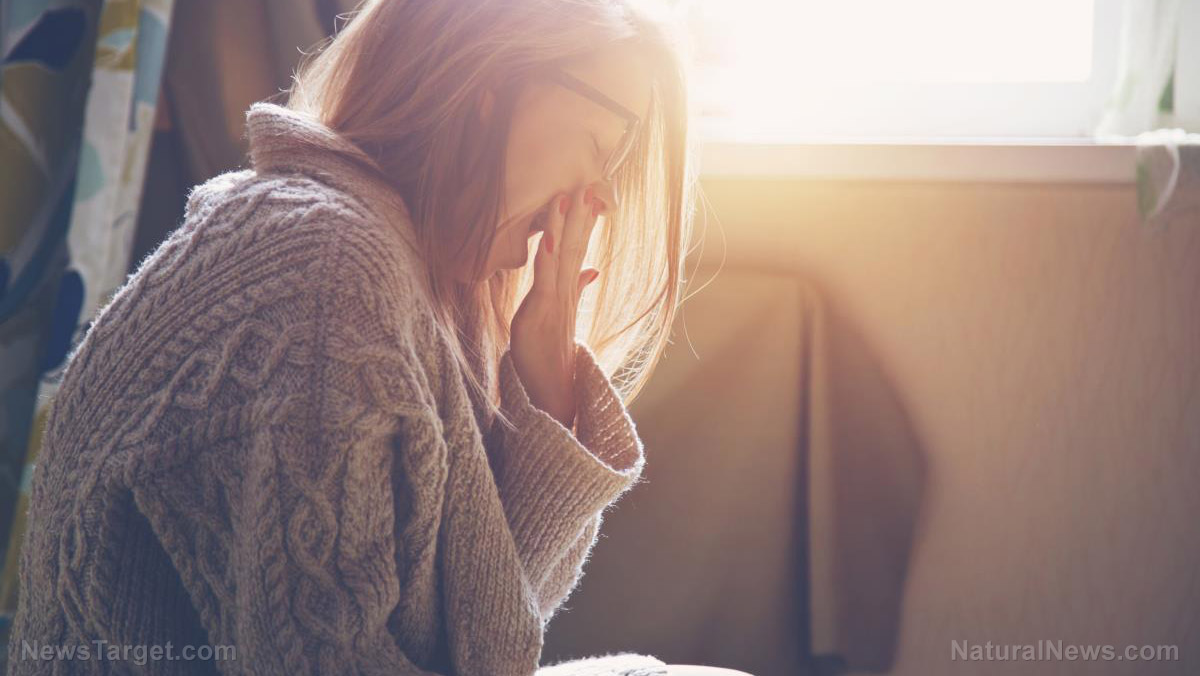Even ONE HOUR of social media can contribute to poor sleep in teens, according to research
07/12/2018 / By Frances Bloomfield

With social media becoming increasingly popular, various issues have since been linked to its usage. The most recent of these was uncovered by Canadian researchers: They found that spending at least 60 minutes on social media could negatively impact your sleeping patterns. The more you used Facebook, Snapchat, or WhatsApp, the higher your odds of not getting enough sleep.
To arrive at this conclusion, the researchers collected data from 5,242 Canadian students participating in the Ontario Student Drug Use and Health Survey. Included in the data were details on how many hours the students slept each night and their duration of social media use. The researchers then compared the participants’ sleep duration to the recommended hour ranges (e.g. nine to 11 hours a night for those in the 11-to-13 age group, and eight to 10 hours a night for those in the 14-to-17 age group).
Going by these standards, it was revealed that only 36.4 percent of the participants met or exceeded the recommended hours of sleep, while the remaining 63.6 percent were getting less sleep than they should. Moreover, 59.6 percent of the boys (who composed 51.4 percent of the respondents) were sleeping too little, whereas 67.9 of the girls (who made up 48.6 percent of the respondents) said the same. (Related: Consequences of sleep deprivation for teenagers.)
Of the students surveyed, the researchers also noted that 73.4 percent said that they used social media for at least one hour each day. With these figures, the researchers estimated that going on social media for an hour every day placed the odds ratio of shorter sleep duration at 1.82. Hiking it up to at least five hours a day significantly raised the odds ratio to 2.98.
When discussing the results of the study, senior author Dr. Jean-Philippe Chaput told the DailyMail.co.uk: “Sleep is an essential component of healthy development and an important contributor to physical health and mental health. However, insufficient sleep has become widespread among adolescents over the last few decades. Insufficient sleep among adolescents has often been attributed to factors such as artificial light, caffeine use, no bedtime rules in the household and the increased availability of information and communication technology.”
Chaput added: “The impact social media can have on sleep patterns is a topic of great interest given the well-known adverse effects of sleep deprivation on health. Electronic screen devices are pervasive in today’s society and we are just starting to understand their risks and benefits.”
Fast facts on sleep deprivation
- People who lack sleep can suffer from a wide array of brain problems, including a higher chance of depression, irritability, anxiety, and forgetfulness. Moreover, these same people are 33 percent more likely to develop dementia compared to those who get adequate sleep daily.
- Sleep deprivation can seriously impact one’s weight as well. In addition to raising the levels of the hunger hormone ghrelin and decreasing the levels of the appetite-controlling hormone leptin, sleep deprivation can amp up one’s craving for sweet, salty, and starchy foods.
- Around 6,000 fatal car crashes that occur annually have been attributed to drowsiness.
- Not getting enough sleep can raise one’s chances of developing heart disease by 48 percent.
Learn how to take better care of yourself by visiting Health.news for studies, news stories, and guides on healthy living.
Sources include:
Tagged Under: child health, circadian rhythm, disease causes, mental health, negative effects of social media, sleep, sleep deprivation, Social media, social media addiction




















